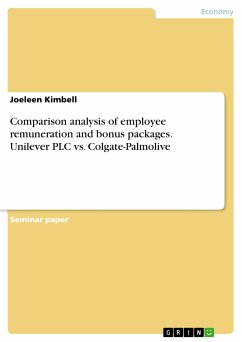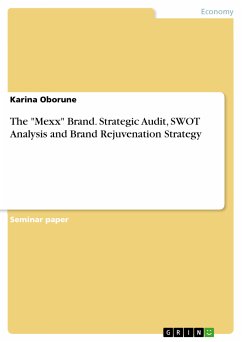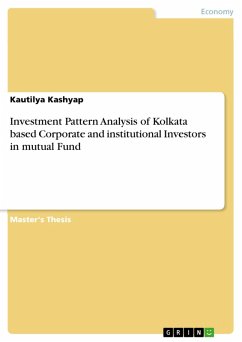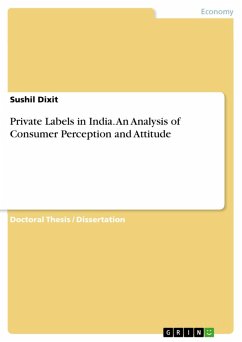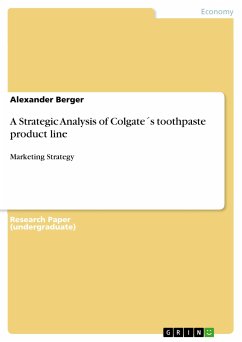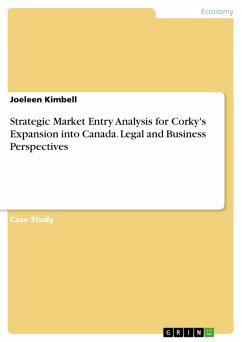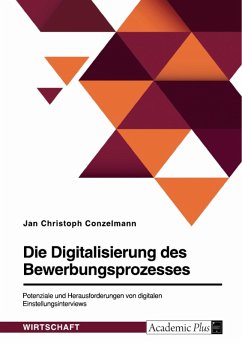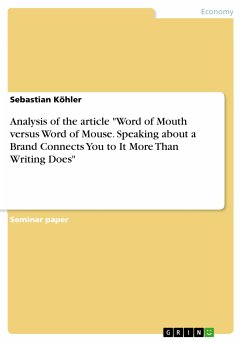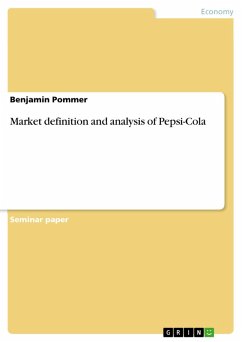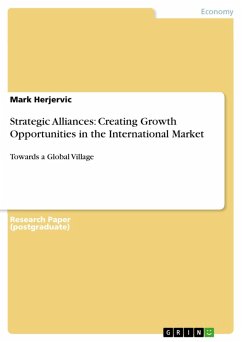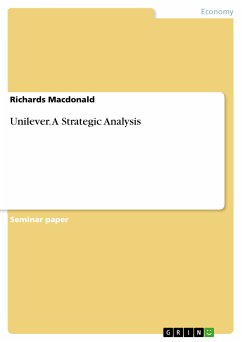
Unilever. A Strategic Analysis (eBook, PDF)
Versandkostenfrei!
Sofort per Download lieferbar
Statt: 9,99 €**
3,99 €
inkl. MwSt. und vom Verlag festgesetzt.
**Preis der gedruckten Ausgabe (Broschiertes Buch)
Alle Infos zum eBook verschenkenWeitere Ausgaben:

PAYBACK Punkte
0 °P sammeln!
Seminar paper from the year 2012 in the subject Business economics - Offline Marketing and Online Marketing, grade: A, University of Cambridge, language: English, abstract: Unilever is a London-based fast-moving consumer goods company that sells its products in nearly 200 countries. However, it is neither the largest packaged consumer goods or food company as it has fiercely competitive rivals. In recent years, new corporate leadership has instituted changes, including a new mission and a new vision. These have resulted in a more positive relationship with consumers, a better public image, and...
Seminar paper from the year 2012 in the subject Business economics - Offline Marketing and Online Marketing, grade: A, University of Cambridge, language: English, abstract: Unilever is a London-based fast-moving consumer goods company that sells its products in nearly 200 countries. However, it is neither the largest packaged consumer goods or food company as it has fiercely competitive rivals. In recent years, new corporate leadership has instituted changes, including a new mission and a new vision. These have resulted in a more positive relationship with consumers, a better public image, and an increasing presence in developing countries. Still, our strategic analysis of the company shows impending threats that can damage Unilever's margin of profit and global stake in the fast-moving consumer goods industry. New brands, mounting competition, and an increase in taxation and regulations are mounting obstacles to Unilever's continued success. In order to overcome these and other future vulnerabilities, Unilever needs to continue its product and information technologies developments, introspection, campaigns, and external monitoring. Company Profile Unilever is an Anglo-Dutch company that consists of over 400 brands "focused on health and wellbeing" (Unilever, 2013a). Unilever sells its products to more than 190 countries and belongs to the fast-moving consumer goods (FMCG) industry. Specifically, it is the second largest packaged consumer goods firm after Proctor & Gamble (P&G), and it is the third largest food company after Nestle and Kraft Foods. While Unilever is based in London, England, it sells food, home, and personal care products over all major continents. Unilever was formed when the Dutch margarine company Margarine Unie merged with the British soapmaker Lever Brothers in 1930. The two companies decide to combine since they were often competing for the same raw materials, oils and fats, to make their products. Today, Unilever has adopted a new mission to
Dieser Download kann aus rechtlichen Gründen nur mit Rechnungsadresse in A, B, BG, CY, CZ, D, DK, EW, E, FIN, F, GR, HR, H, IRL, I, LT, L, LR, M, NL, PL, P, R, S, SLO, SK ausgeliefert werden.




